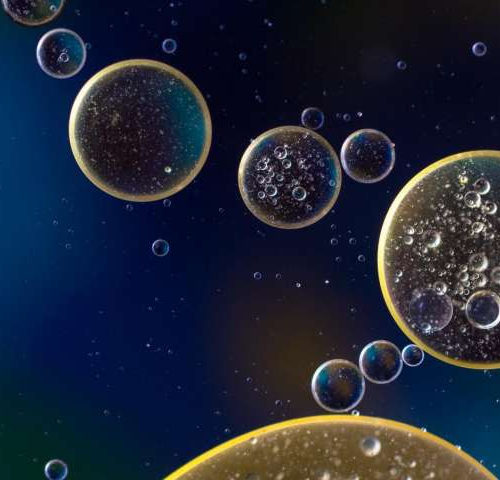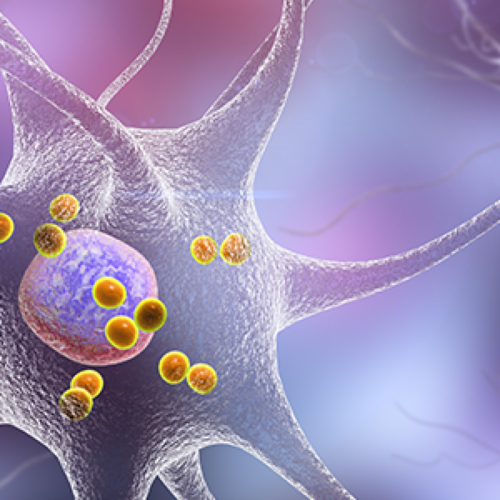by University of Edinburgh Experts say the cells—located in the curtain of tissue that covers the intestines—play a vital role in containing the spread of peritonitis, which is triggered by abdominal infection after a perforation in the intestines. The study could pave the way for new treatments to combat sepsis, which kills more than 50,000...
Tag: <span>Immunology</span>
New approaches to treating obesity, metabolic syndrome and diabetes
by Immanuel Kant Baltic Federal University In the 21st century, the search for methods of treating noncommunicable diseases, such as obesity, metabolic syndrome, and diabetes are among the top priorities. Prevention and treatment of these diseases include changing and controlling lifestyle, diet, and the use of pharmaceuticals. Despite the progress in medicine and pharmacology (developing...
Blood analysis reveals signs of Parkinson’s 10 years before diagnosis
By Nick Lavars In 2017, scientists at Columbia University found the first direct evidence that autoimmunity may play a role in the onset of Parkinson’s disease. The same team has been working to fill in this timeline of physiological events and uncovered further evidence of how the immune system contributes to the development of the...
Johns Hopkins experts publish ‘guidebook’ for blood plasma therapy
“We’ve received many inquiries from health care providers looking to ramp up their ability to deliver this therapy,” says Evan M Bloch, M.D., M.S. an associate professor of pathology at the Johns Hopkins University School of Medicine who is part of the team working on convalescent therapy. “There is historical precedent for its use to...
Breaking news on penicillin allergy
News briefs on three new penicillin allergy studies AMERICAN COLLEGE OF ALLERGY, ASTHMA, AND IMMUNOLOGY HOUSTON (Nov. 8, 2019) – At some point you may have had a reaction to penicillin and were told you were allergic. And there’s a good chance it has stayed in your chart throughout your childhood and into adulthood. But 9 of 10 Americans who...
Learning to stop cancer at its roots
BAYLOR COLLEGE OF MEDICINE Why do some cancers come back? Sometimes, a treatment can effectively eliminate cancer cells to undetectable levels, but, if the treatment stops, cancer may return. This is the case of chronic myeloid leukemia treated with drugs known as tyrosine kinase inhibitors. These drugs have dramatically improved clinical outcomes and generated unprecedented rates of complete responses...
Moffitt researchers identify a mechanism controlling tumor cell recognition by immune cells
The STING signaling pathway induces an inflammatory response and tumor cell recognition H. LEE MOFFITT CANCER CENTER & RESEARCH INSTITUTE TAMPA, Fla. (Nov. 1, 2019) – Immunotherapy has become a standard treatment approach for several types of cancer, including melanoma. However, tumors can escape immune cell detection even with the use of immunotherapies. In a...
Creatine powers T cells’ fight against cancer
UNIVERSITY OF CALIFORNIA – LOS ANGELES HEALTH SCIENCES Creatine, the organic acid that is popularly taken as a supplement by athletes and bodybuilders, serves as a molecular battery for immune cells by storing and distributing energy to power their fight against cancer, according to new UCLA research. The study, conducted in mice and published in...
New study shows response to HIV vaccine in 6 weeks
By Dr. Liji Thomas, MD A US study using DNA-based and protein HIV vaccines in various combinations shows that antibody and a cellular immune response occurs within 6 weeks from the date of vaccination, and the combination must be administered together for the most rapid protection. This will enable more large-scale testing of the vaccine...
Quality control in immune communication: Chaperones detect immature signaling molecules
by Technical University Munich The cells of our immune system constantly communicate with one another by exchanging complex protein molecules. A team led by researchers from the Technical University of Munich (TUM) has now revealed how dedicated cellular control proteins, referred to as chaperones, detect immature immune signaling proteins and prevent them from leaving the cell. The body’s defenses systems have to react quickly whenever pathogens...



